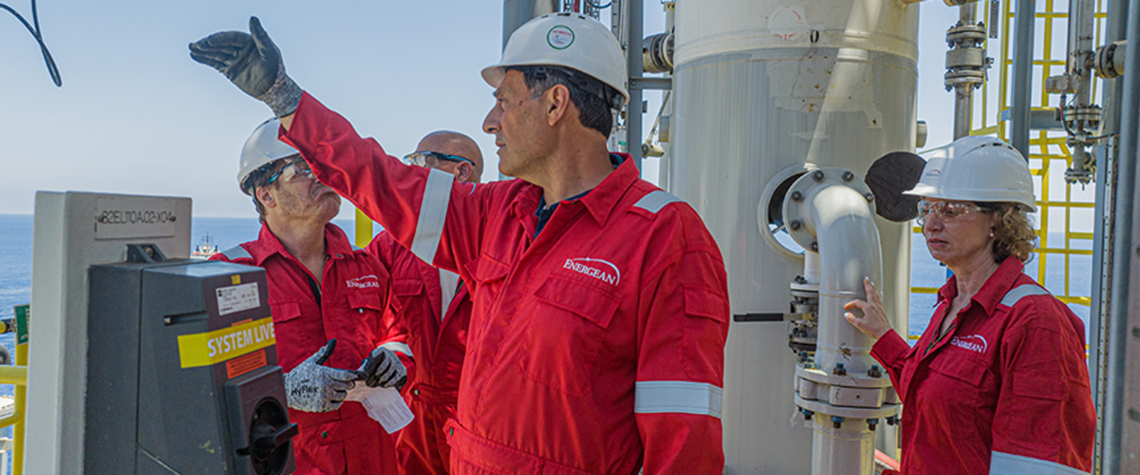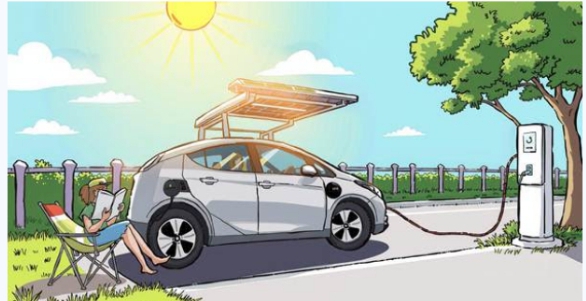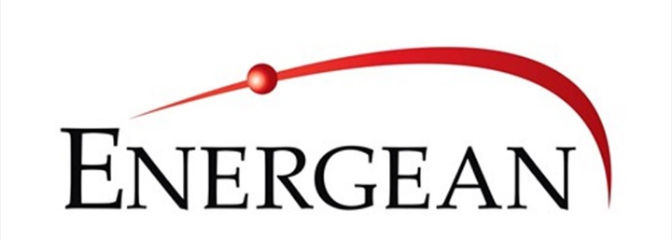By Paul Hickin
Mediterranean-focused gas producer looks to replicate Israel success story and is hunting projects across the continent, with particular interest in West Africa
Energean, with operations across the Mediterranean and the UK North Sea, is ready to go further afield in its quest to grow its business, with CEO Mathios Rigas telling Petroleum Economist in an exclusive interview that the company is uniquely positioned to develop the right assets across Africa.
“We need to keep growing. And we need to seek opportunities in other parts, outside the Mediterranean. We have proven our success in the Mediterranean; we built the business from pretty much nothing to where we are today. And our aspiration is to do the same in Africa,” Rigas said, pointing to the two decades of growth.
Energean produces close to 170,000boe/d over a portfolio of assets mainly in Greece, Italy, Croatia, Egypt and Israel, and has seen its share price more than double since listing on the stock exchange in 2018.
“We have proven our success in the Mediterranean; we built the business from pretty much nothing to where we are today. And our aspiration is to do the same in Africa” Rigas, Energean
Rigas, talking on the sidelines of the Invest in Africa conference in Paris in mid-May, said that, while there is no specific project or country in mind, it was the same scenario before he built the business in the East Med, which he did by listening, learning, identifying opportunities and then focussing on the ones he believes where Energean can create value.

Rigas is optimistic Energean will find the right project in the coming months and sees the success in places such as Israel and Egypt as perfect stepping stones for the next African adventure, noting the company is looking at other North African opportunities—even after returning Moroccan onshore assets back to fellow independent Chariot recently—but that he is more actively eyeing West Africa.
“We have something unique, which is going to be very valuable for West Africa. But also in the wider Africa area as well. [Energean] is a company that has deepwater operating capabilities that no other independent has. We have proven that we can build infrastructure for FPSOs, that we can drill deepwater wells, [and] we can lay deepwater pipelines. We can bring big projects together, and we can sell gas to the domestic markets like we did in Israel,” the CEO spelled out.
Rigas added that Energean is also able to take fast decisions “because of the nature of our business, [and] because a big part of the shareholding is in the hands of management and the board,” putting it in a position to act like some of the independents that thrive in the region, but with the size to take on those ventures that may be a bit too much for some smaller players.
Energean also has a proud record of fully committing to a country, which is a huge selling point for its targeted region, where the importance of providing power to local population is of crucial importance above and beyond exporting abroad.
Time is right
Rigas highlighted that there is much chagrin within Africa that resources are discovered but remain undeveloped and not commericalised, and there is too much emphasis on exporting the gas to somewhere else. His message was clear: while projects must be bankable and maybe exports are part of that, the focus should be on the gas for local industry and people.
The timing could not be better for Energean. It has finished the development of the Karish field, which is in a stable production phase in Israel, and the company is “well on track” to complete the Katlan field by 2027, while there is also the Tanin field further out. While Rigas acknowledged the past year in conflict-hit Israel has been challenging, he stated there had been no operational glitch and that the weather tends to present the greater test due to extremes of power demand. And so the UK-based gas producer is ripe to broaden and diversify its portfolio just as the African gas story is taking pride of place right next to oil after playing second fiddle for decades.

Rigas also elaborated on why the company’s 15 years of experience in Egypt put it in good stead to explore the wider region.
“Egypt is a great country to operate in. It has its challenges; we all know it. We all know that there is an issue with payments. Egypt, for the whole industry, not just for us. It is part of the deal. But, overall, you need to be comfortable and have faith in Egypt. And I do have faith in it that way, especially with the geopolitical situation as it evolves today,” Rigas explained.
“If you want to do business in this part of the world, you should be present in Egypt. Egypt is the leader for a lot of the Muslim countries. And to be an operator in Egypt means that you have a stamp of approval from the government,” Rigas noted, as he clarified that Energean would also go back into Morocco, which he also called a great country to operate in across North Africa too.
Rigas noted there is “no easy country to run an oil and gas business in” but that the UK-headquartered company sees the Mediterranean and West Africa as the best fit for its own strengths.
The CEO also highlighted how energy security is returning to the forefront of policymaking.
“The oil and gas industry should continue to generate the income it generates and the jobs in the energy security… The environmental and green considerations are all valid and we respect them. Energy security is extremely important. And, once that sinks into governments, you will see policy changes,” Rigas said, adding that he expects this to happen even in the UK as well.
Financial muscle
Energean has faced questions over its debt and has been actively trying to deleverage its balance sheet and boost growth. Net debt is expected to decrease to between $2.70b and $2.90b in 2025, down from $2.95b in 2024, with Rigas pointing out that, while this has been on shareholders’ radars, dividends continue to be strong and unaffected and the mindset is one of balanced growth.
“We have paid so far $600m in dividends. And we intend to continue the dividend policy we announced a few years ago. So dividends are an integral part of our financial planning because we believe that loyal long-term shareholders should be rewarded by oil and gas companies,” he said.
The well-documented collapse of the sale of its non-core assets in Egypt, Italy and Croatia to private equity fund Carlyle International Energy Partners was a “disappointing” setback as a way of improving the debt profile, but Rigas also pointed out that the assets are still very good ones, while Israel continues to be a key source of long-term strength.
”If you look at our debts, some people say it is high. And I agree. But it is underpinned by $20b of contracted revenue for the next 15 years from Israel. So, we have a total of $3b of debt, but we have $20b of contracted revenue for the next 15 years,” Rigas explained, adding “so that allows us to be a little bit more aggressive with debt than we would have been otherwise because we have the underlying cashflows.”
Rigas also stated that debt-to-EBITDA is coming down because Energean is growing its business at a comfortable level and this means familiar projects to what the company has done before and not exploration.
Energean is focused on “acquiring a discovered resource that for a major is not relevant, because it is either too small or it is in the wrong part of the world, or it is very low on the list of priorities that they have. Then we take over and develop it. Assets that are too big for the independents or they do not have the operating capability to develop,” Rigas said.
Rigas added that Energean is looking at discovered gas, mostly offshore, that is in the “sweet spot” in terms of size between the big players and the smaller independents. And that Africa has an abundance of assets that need operators like Energean to come in and develop them.
Rigas’ message to the big players is loud and clear: do not sit on your assets, give them to companies that will do something with them. The CEO said Energean did the same thing with the resources in Morocco, giving them back to Chariot because it was too small for them and they did not want to keep it on their books forever.
Rigas also called on governments to push the IOCs to “either give the projects back or bring on a partner” and to not be afraid of the negative PR.
“Every minister, every president, should try to monetise as much of the resource as they have in their countries today, with any company that is willing to do it today. If it is an energy major, fine, [but] if they do not want to do it. Let us do it,” Rigas said unequivocally. “Do not wait.”
Source: Petroleum Economist







